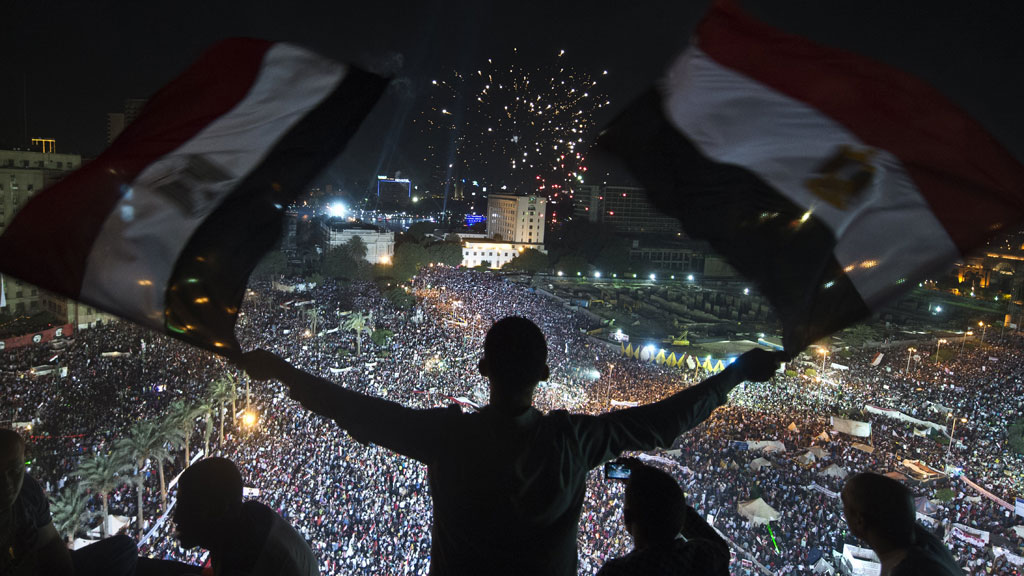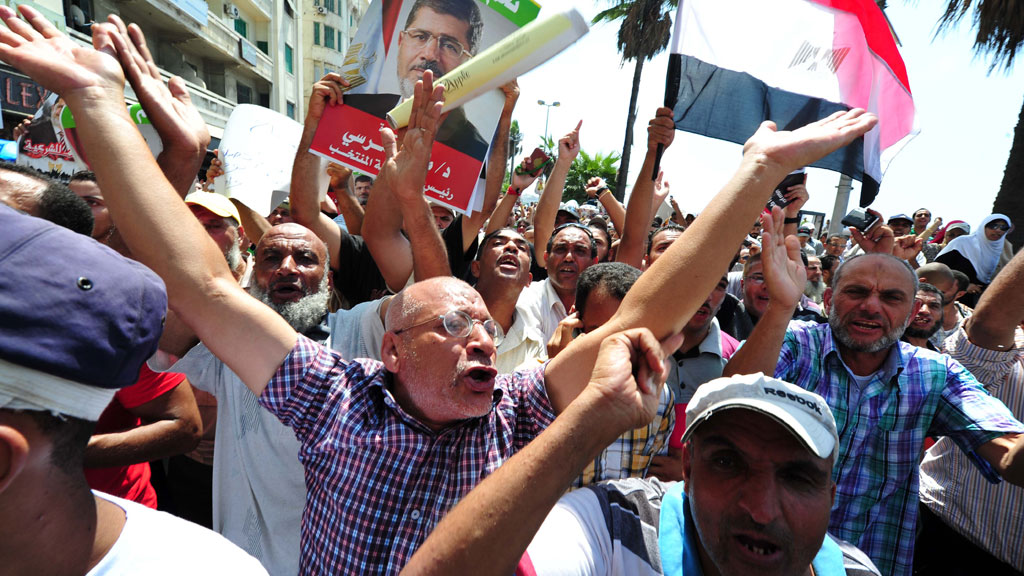Why Egypt’s future prospects are hanging in the balance
Two years on from the Arab Spring, Egypt is teetering on the bring of chaos. Defence analyst Anthony Tucker-Jones looks at the country’s prospects for peace – or civil war.

General Martin Dempsey, chairman of the US Joint Chiefs of Staff, recently warned that Syria has become a regional conflict stretching from Beirut to Damascus to Baghdad, writes Anthony-Tucker Jones.
After the past, week the worry is that Cairo will join this roll call and become part of the wider Shia-Sunni civil war that is blighting the Middle East.
With at least 623 deaths and thousands of casualties following the security forces’ crackdown on 14 August, Egypt is clearly teetering on the brink of catastrophe. The Muslim Brotherhood claims over 2,600 people were killed but the authorities say fatalities were about a fifth of this number.
While the UK, US, France and Germany were swift to condemn the violence, they have no leverage with which to bring it to an end. Washington continues to refuse to play its military aid card and cut off its annual billion-dollar subsidy. Cancelling joint military exercises is a meaningless gesture.
Events in Cairo have cast a shadow over the country’s long-term stability. If the democratic process is not put back on track Egyptians face military dictatorship and potentially a destabilising civil war.
Egypt essentially has four main alternatives: a smooth transition back to democracy, a military-backed administration, a return to dictatorship or outright civil war.
Transition to democracy
However you look at it, the removal of President Mohamed Morsi and the Muslim Brotherhood on 3 July was a coup against a democratically elected government.
Arguably, after just 12 months in power, the military did not give Morsi’s administration sufficient time to turn the country around.
The Muslim Brotherhood, led by its “supreme guide” Mohamed Badee, is now at violent loggerheads with the caretaker administration. It was the administration’s refusal to clear the streets of Cairo that in part led to the latest round of bloodshed.
The worry is that Cairo will become part of the wider Shia-Sunni civil war.
Interim Prime Minister Hazem al-Beblawi now has his work cut out trying to steer a demoralised electorate to new elections scheduled for 2014.
A possible democratic saviour is the former head of the International Atomic Energy Agency and Nobel peace laureate Mohamed ElBaradei.
ElBaradei took the moral high ground by resigning from the interim administration on 14 August. He is no friend of the Muslim Brotherhood or the military, having criticised the Supreme Council of the Armed Forces’ ham-fisted attempts at creating a new constitution.
Previously he pinned his hopes on gaining power in 2016, but his lack of polical experience greatly plays against him, and placating the Muslim Brotherhood seems an impossible task.

Military-backed government
Egypt’s armed forces are the one institution that can restore order, but at what cost?
They are hostile to the Muslim Brotherhood, especially after Morsi pushed out former commander-in-chief General Mohamed Hussein Tantawi last summer. It was Tantawi’s successor and current commander-in-chief, General Abdul Fattah al-Sisi, who oversaw President Morsi’s downfall.
Whoever wins the election in 2014 will need al-Sisi’s backing. Already a large number of the regional governors are military appointees and they are unlikely to relinquish their posts in the near future.
The military has long been held in high regard because of its performance in the 1973 Yom kippur War and more recently in 2011, when it helped facilitate the fall of President Hosni Mubarak.
In the face of mounting civilian casualties, will the army fall from grace?
Return to Dictatorship
In 2011, in response to growing protest in Cairo, the military had every reason to maintain the status quo but it opted to speed up the country’s presidential elections. Ironically, or perhaps deliberately, this laid the foundations for the current situation.
In 2012 the worry was that if the transition to democratic power was not handled carefully, unrest would play into the military’s hands, and they could declare martial law. A year on this has come to pass.
Egypt is a vast country and militants can smuggle weapons in with relative ease.
It is conceivable that the current month-long state of emergency could remain long-term, as it did under Mubarak. This could easily be justified by the escalating violence on the streets.
Many Egyptians see General al-Sisi as the man to lead them out of the current chaos. Although al-Sisi was appointed Minister of Defence under President Morsi, interim Prime Minister al-Beblawi chose him as his deputy and he is seen as a steadying hand.
Although the military is popular with anti-Morsi demonstrators, their heavy-handed treatment of Morsi supporters in Cairo has put them in a difficult position. This has clearly undermined al-Sisi’s position with the moderate political elite.
Algerian Option
The situation is very similar to that which Algeria found itself in in the early 1990s when the ruling National Liberation Front cancelled the elections for fear of the Islamic Salvation Front gaining power.
Algerian Islamists took to the mountains and the country was wracked by a decade of long guerrilla war that left up to 150,000 dead.
Egypt is a vast country and militants can smuggle weapons in with relative ease. Since the fall of Mubarak the security situation has deteriorated in the Sinai, which has long been plagued by smugglers and gun runners profiting from the Palestinians in the Gaza Strip.
The armed forces will struggle to contain any wider armed insurgency. The reality is that it is configured to fight a conventional war with Israel, although it does have considerable commando and special forces, as well as the elite Force 777 counter-terrorist unit.
Whatever happens over the next six months the military is unlikely to take a back seat. In the name of restoring order, Egyptians are likely to clamour for a Mubarak-style strongman.
Anthony Tucker-Jones is a freelance defence writer who specialises in counter-terrorism and regional conflicts.